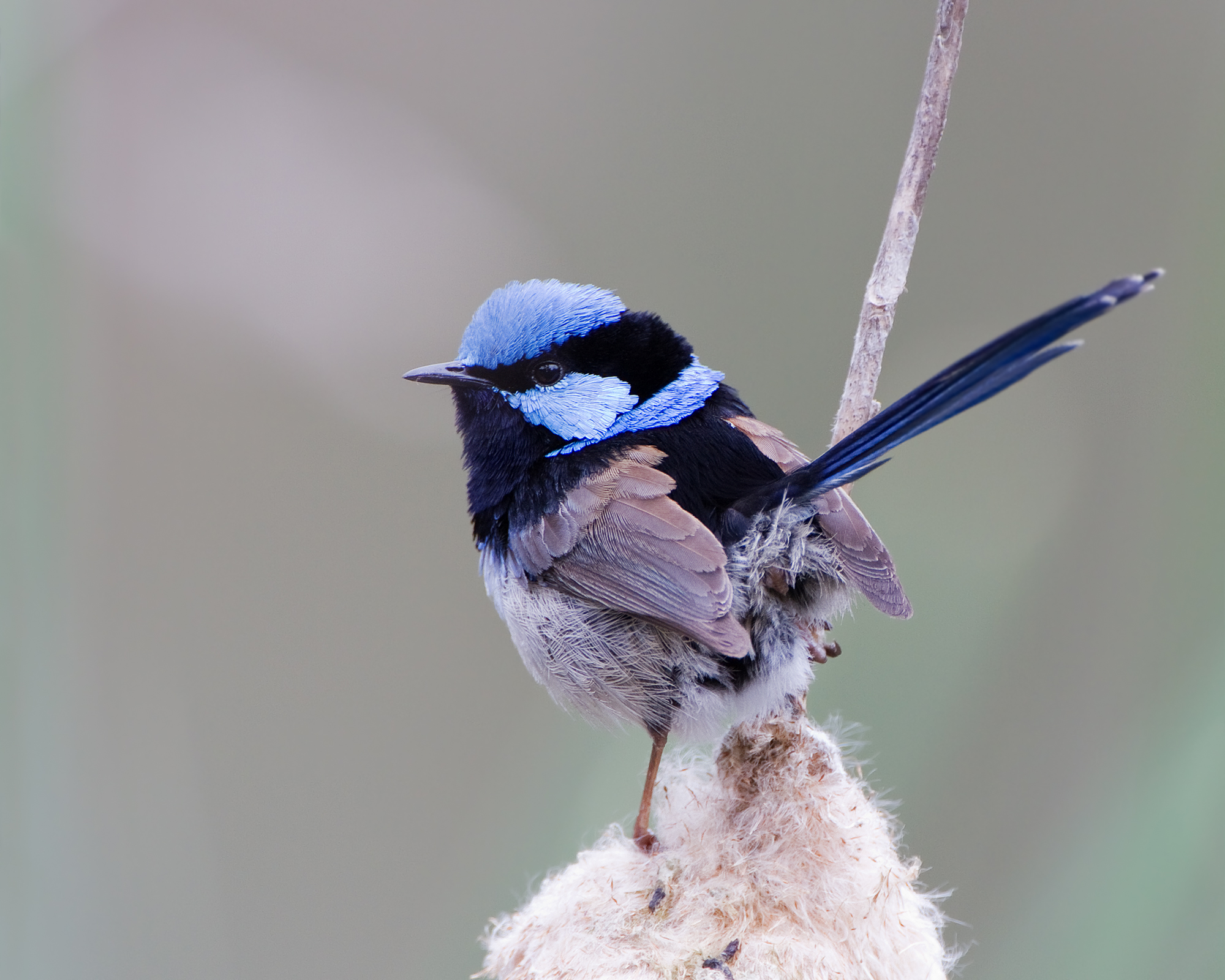The title of this news article in Nature, 8 November, "Wrens teach their eggs to sing" is a little misleading - Superb Fairywren (Malurus cyaneus) mothers are teaching their offspring to make a specific begging call that allows them to distinguish between their chicks and cuckoo hatchlings. They start calling to the eggs about 10 days before they hatch, and the hatchlings must make this call in order to be fed. Apparently, cuckoo eggs hatch earlier than those of the wrens, but they aren't capable of learning the call in time. The cuckoo nestling will push unhatched wren eggs out of the nest. This 'secret password' mechanism allows the parents to waste less time feeding a chick that isn't their own; they will abandon the lone cuckoo chick to start on another brood.
The finding was discovered by accident by researchers at Flinders University in Adelaide by Sonia Kleindorfer's team.
Cross-fostering the wren eggs, i.e., switching the eggs in the nest with the eggs of another wren pair before the parents started making the calls, showed that the specific call was learned, not genetic. The system isn't perfect, though. One cuckoo species, is always identified by the wrens, but another succeeds in finding the right password call some of the time. "Kleindorfer says there is evidence that, in the latter species, the
cuckoo nestlings attempt to guess the password by trying out different
calls."
I have always found it amazing that parents of parasitized species don't recognize the cuckoo chicks as intruders without a mechanism like this. Other species, such as cowbirds have the habit of parasitizing other species's nests.
The original research was published as a report in Current Biology, [in press, corrected proof, at this time] "Embryonic Learning of Vocal Passwords in Superb Fairy-Wrens Reveals Intruder Cuckoo Nestlings" http://dx.doi.org/10.1016/j.cub.2012.09.025
 |
| Superb Fairywren (Malurus cyaneus) photo by JJ Harrison http://en.wikipedia.org/wiki/File:Malurus_cyaneus_PM.jpg |
They were recording inside the birds' domed nests in search of anti-predator calls when they noticed that female fairy-wrens were singing to their unhatched eggs. When Kleindorfer and her team analysed recordings made over the full nesting cycle, they found that the wren nestlings in a given nest all had the same begging call, which was unique to their nest. [My emphasis] That call contained a signature element present in the call the mothers had made while incubating the eggs, and in the call she used to solicit food from the father. When the researchers broadcast a foreign nestling call at the nests, both the female and male adult birds refused to feed the chicks.
I have always found it amazing that parents of parasitized species don't recognize the cuckoo chicks as intruders without a mechanism like this. Other species, such as cowbirds have the habit of parasitizing other species's nests.
The original research was published as a report in Current Biology, [in press, corrected proof, at this time] "Embryonic Learning of Vocal Passwords in Superb Fairy-Wrens Reveals Intruder Cuckoo Nestlings" http://dx.doi.org/10.1016/j.cub.2012.09.025
No comments:
Post a Comment